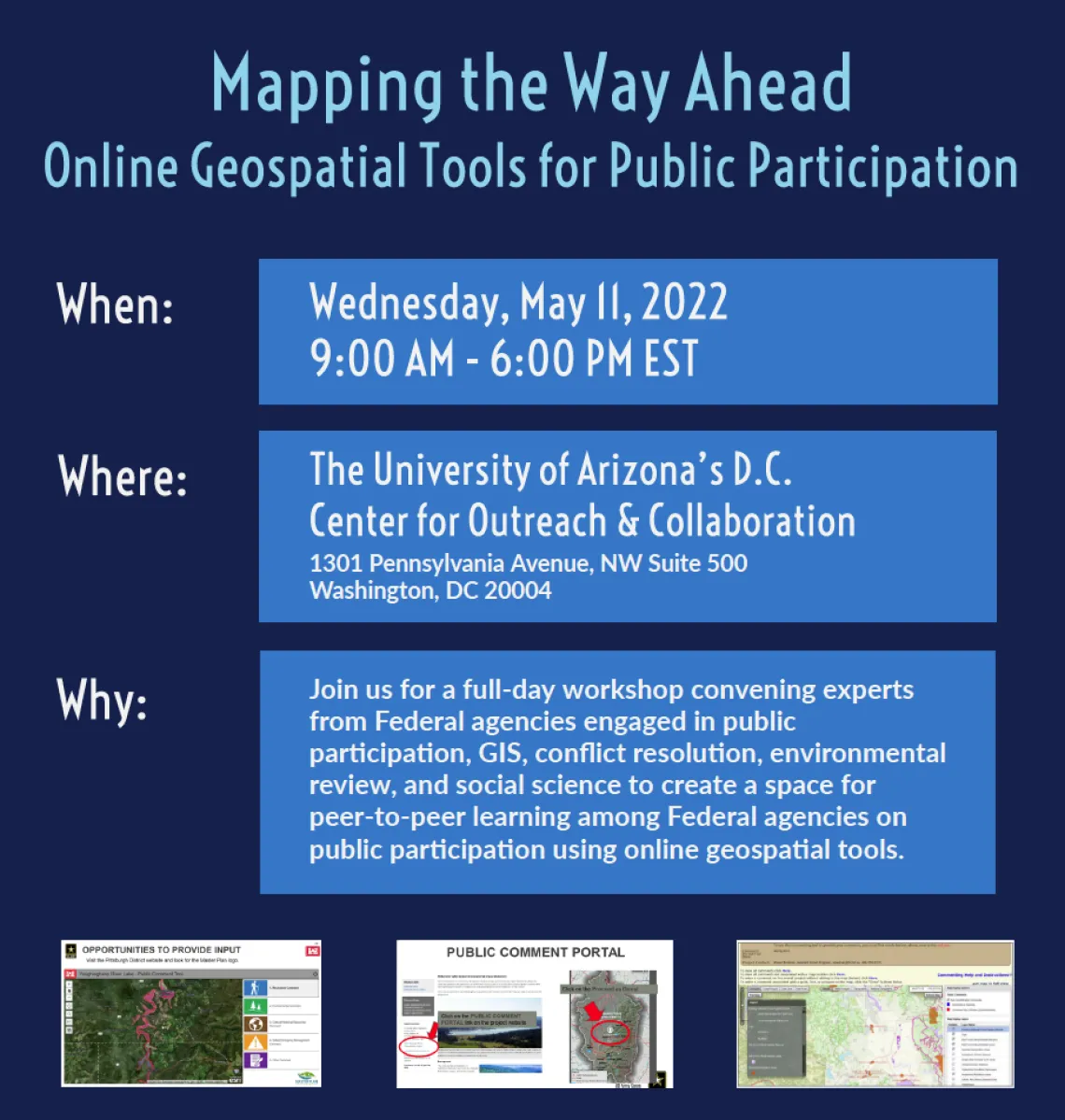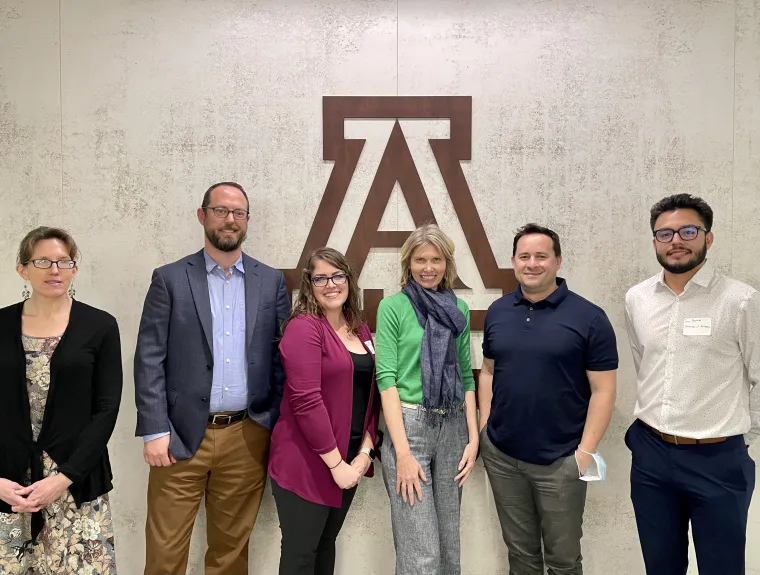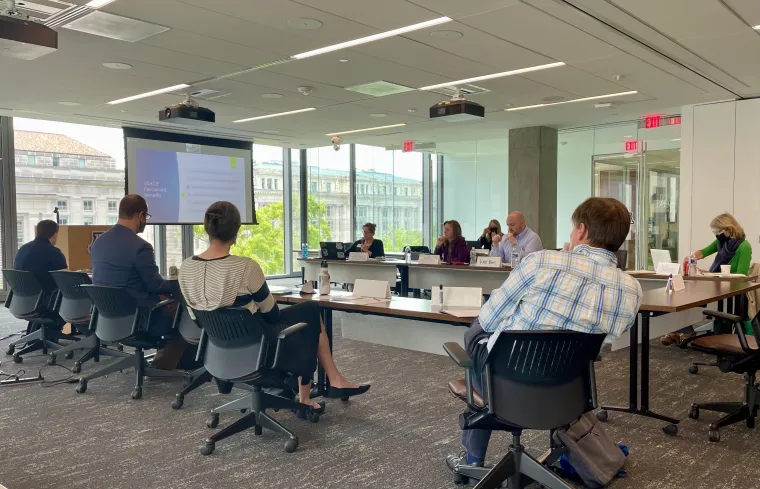Udall Center hosts a workshop on geospatial tools for public engagement in environmental governance

On Wednesday, the Udall Center for Studies in Public Policy (Udall Center) hosted a workshop in Washington, DC at the University of Arizona’s Center for Outreach & Collaboration. In partnership with the John S. McCain III National Center for Environmental Conflict Resolution (NCECR), led by Dr. Julie Minde, post-doctoral research associate, Federal agencies with environmental and natural resource management responsibilities convened to discuss online geospatial tools for public participation.
Dr. Julie Minde kicked off the workshop by articulating how the use of geospatial online tools is growing across the U.S. by both local and federal government actors to engage the public in decision-making and information sharing. According to Minde, “these tools are being used globally in ways and places as diverse as local management of homeless populations in the U.S. to documentation of war crimes in Ukraine. The tools seem so simple: a person goes online to the app through their smartphone or laptop and inputs their information, which can range from observations about their surroundings to opinions or values regarding their environment. However, we are finding that the app itself is only the tip of the iceberg; there is a lot of important social complexity wrapped up in these tools, which can have a positive – or negative – impact on public participation.”
The aim of the workshop was to create a space for dialogue on how geospatial tools are designed, used and evaluated to support public engagement in environmental decision-making in the U.S. University of Arizona faculty Assistant Professors Ladd Keith (College of Architecture, Planning and Landscape Architecture) and Fernando Sánchez-Trigueros (School of Geography, Development and Environment) shared their engagement with geospatial tools and helped lead workshop participants in sharing their experiences. Steph Kavanaugh, Deputy Director of NCECR, facilitated the workshop.

From left to right: Dr. Julie Minde (Udall Center), Dr. Ladd Keith (CAPLA), Molli Bryson (Udall Center), Dr. Andrea Gerlak (Udall Center/SGDE), Dr. Fernando Sánchez Trigueros (SGDE), and Juan Bautista (Udall Center).
Participants represented some 13 Federal agencies, as well as other key stakeholders, including ESRI, Kearns & West, RESOLVE, the National Institute for Civil Discourse, and the International Association for Public Participation (IAP2). Three geospatial online tools were demonstrated: the U.S. Army Corps of Engineers’ application of Crowdsource Reporter, the Bureau of Land Management’s Human Ecology Mapping, and the U.S. Geological Survey’s Values Mapping for Planning in Regional Ecosystems. Other agencies discussed their use of geospatial online participatory tools as well as their future plans for the use of such apps.
Workshop participants discussed challenges to the use of these tools, such as the digital divide, data management and access, and capacity building. Questions of data sovereignty for Tribal communities are a particular challenge facing Federal agencies. However, greater inclusivity and heightened public trust are potential outcomes of these public participation tools, which serves as a motivation among agencies to adopt and develop them. “These geospatial tools can be a great engine of democracy for environmental governance,” noted Dr. Andrea Gerlak, Director of the Udall Center. “Sharing lessons both within and across agencies is necessary to better understand best practices and ultimately, the outcomes of these processes and tools,” said Gerlak.

For more on this, Research, Innovation & Impact (RII) also wrote this article called, "Udall Center for Studies in Public Policy hosts inaugural workshop for federal agencies."

